EV Home Charger Installation Guide: How to Charge an EV at Home
- Save over £1,000 a year with an electric car
- Get £350 off installation costs for an EV chargepoint at your home
- Use our online calculator to get a free quote for an EV home charger in seconds
Clearly an electric vehicle is far bigger than a mobile phone so you’ll need to install an EV chargepoint at home. Beyond the convenience and peace of mind charging your electric vehicle at home offers, you’ll also find an EV home charger is cheaper, faster and safer.
Attached to the wall in a minimal, sleek design, growing use of electric cars means there’s an ever widening range of EV home chargers to buy. Clearly the size and power of your electric vehicle means an ordinary electric socket is not going to work.
Not only is the power emitted from an ordinary socket too low to charge your car anytime soon, it’s also very dangerous.
Risks from attempting to charge an EV in a standard domestic socket include, overheating, accidents from over wires, adding an extension lead and overloading your supply and more.
From fire risks to broken limbs, it’s not an option to consider so it’s no surprise energy companies offer lower tariffs to charge your car from a domestic EV chargepoint.
Able to charge a standard-sized car in around 6 hours if you choose fast charging (rapid charging is even quicker but has its drawbacks), EV home chargers make electric vehicles a practical solution for ordinary use.
Plug your electric car into the EV chargepoint whilst it sits on the drive and your electric vehicle is always ready to use. If you qualify, it’s even possible to get up to £350 off the cost off your chargepoint.
From costs to installation and what to expect. Here’s all you need to know about EV home chargers.
Ready for an EV home charger? Use our quote comparison tool to find out how much you'd pay. It only takes a minute.
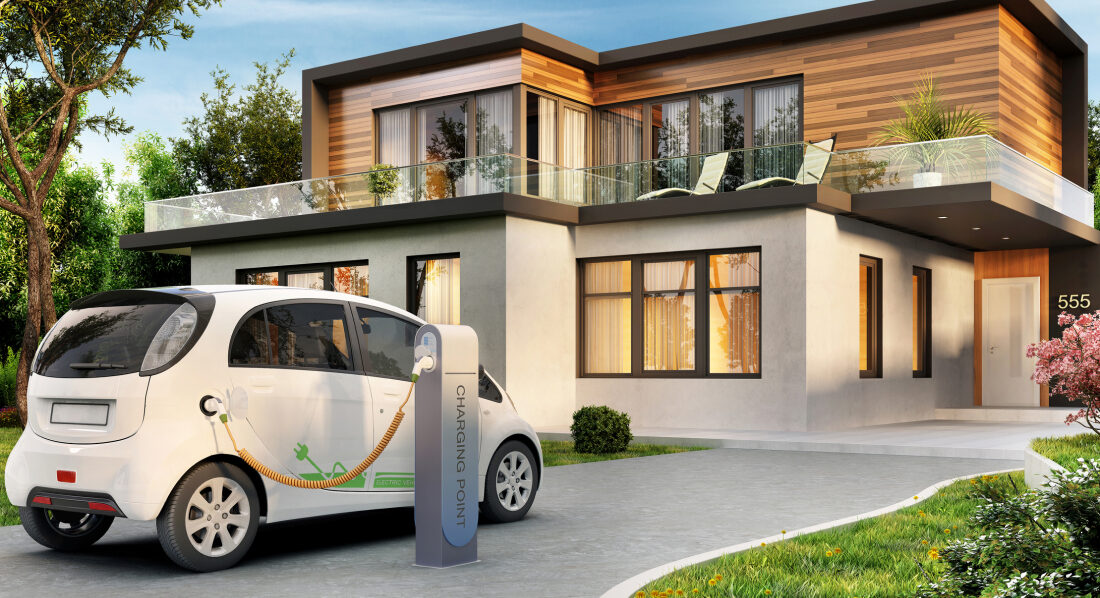
What's On This Page?
Click the links below and head straight to a specific section of the article.
How Is an EV Home Charger Installed?
Installing an EV charger at home is easy because it’s not a job you can do yourself. You’ll need to have a specially designed domestic charging unit installed to charge your electric vehicle at home, called an EV chargepoint.
Your EV chargepoint for home needs to be installed by an expert. Installation takes 2-3 hours and involves the installer connecting the chargepoint to your mains electricity as well as fixing the chargepoint unit to the wall.
Domestic chargepoints are a small box-like unit that is aesthetically pleasing and extremely discreet. The EV home charger will be mounted on an external wall close to your parked car, whether in your driveway or garage.
How Do You Charge an Electric Vehicle at Home?
When you’re home, whether day or night, attach the charging cable from the EV chargepoint to your electric vehicle and leave it to charge.
Charging will cut out when the battery is full so you can plug in the charger and leave the chargepoint to do the rest. EV chargepoints for home are sophisticated contemporary devices with software to aid maintenance and everyday use.
Charging More Than One Car at Home
If you plan to charge more than one car at home, which may well be an increasingly common requirement for many, make sure the chargepoints you install are suitable for dual charging.
Look for chargepoints that have a crucial power balancing feature to prevent your domestic electricity supply being overloaded.
Always talk to your installer and chargepoint supplier about how you want to use the chargepoint. Home charging is a contemporary add-on to your usual mains electricity use so it’s critical your electricity consumption remains in-keeping with the capacity of your domestic electricity supply.
Best Times to Charge an EV at Home
How frequently you charge your electric vehicle is up to you and you’ll soon learn how often you need to charge your vehicle. Most electric car owners charge their electric vehicle at night because as well as being convenient and efficient, there are often cheaper tariffs available from energy suppliers.
Always talk to your energy supplier about the latest tariffs available so you can make the most of the cheapest times to charge.
Of course, you can use public chargepoints to top up during the day and even travel with a portable charger in the boot if you choose! Think of your EV chargepoint for home like a big tablet charger, it’s there for you to use at the frequency of your choice.
Want to know more about charging electric cars? Read our comprehensive guide to EV charging. Or get a free quote for an EV home charger now and see how much you’d pay in seconds
Can I Get an EV Chargepoint Installed on My Road?
Yes, if your local authority agrees, you can get an EV chargepoint installed on your road, it’s also possible to get one installed at work, here’s how:
If you don’t have a driveway or garage, the On-street Residential Chargepoint Scheme is a government grant scheme which can help you get an EV chargepoint installed on the road outside your home.
As part of the On-street Residential Chargepoint Scheme, the EV chargepoint will be your local authority’s responsibility to install and they’ll get government funding to do so. Learn more about the On-street Residential Chargepoint Scheme.
If you live in a flat or rented accommodation or want a chargepoint installed a work, there are other grants from the OZEV which enable you to get up to 75% off the cost of both purchase and installation. Learn more about government grants for EV chargepoints.
Home EV chargers have been installed for a number of years, and it can only be estimated how many will be installed as more people make the change to electric cars. CleanTechnica used data from the Department for Transport between the years 2015 and 2019 to project the number of EV chargers installed across the years to 2025. They estimate that 362,270 homes will have their own EV charger by 2025. You can see how their data is projected in the graph below. The years were projected from 2020 onwards.
What the graph doesn't predict is the government amendment to Building Regulations, stating that all new homes in England are required to have EV charging points fitted.
What Charging Speed Should My EV Charger Be?
When you purchase a charger you’ll need to decide how fast you want the charging rate of your EV home charger to be. For a standard car, a slow charger will take around 12 hours to deliver a full charge whilst a fast charger will complete the task in half the time and rapid charger will do it in around an hour.
Each charging speed offers its own advantages but most owners opt for fast charging which means a charging rate of around 7kW. Rapid speeds are largely the reserve of commercial premises which have the capacity to manage higher charging rates.
Although you will have your own preference, the car battery’s rate of charge may be the deciding factor because it will provide a limit to how fast you can charge your EV. Discover all you need to know about charging speeds.
For a quick comparison, here’s how different charging speeds compare for a full battery recharge.
A normal 3-pin socket has been included for comparison purposes only. Clearly an electric vehicle was not designed to be charged in an everyday household socket with a 2.5kW rate of charge intended for household appliances.
Attempting to charge an EV in an ordinary socket runs all sorts of risks from overheating and more. We’ve all heard of everyday devices overheating in standard sockets so the hazards from trying to charge an enormous car are too great to risk.
OZEV grants mean you don’t have to pay the full price for an EV home charger.
Charging Speeds Compared
Type of EV |
Fast Charging |
Slow Charging |
Rapid Charging (to 80% max. only) |
3-Pin Socket (Not recommended. For comparison only) |
Nissan Leaf |
6 hours |
12 hours |
(if upgraded to 50kW or more) around 60 minutes |
18 hours |
Volkswagen ID 3 |
7 hours |
26 hours |
(if upgraded to 50kW or more) around 60 minutes |
20 hours |
Tesla 3 |
12 hours |
24 hours |
around 60 minutes |
36 hours |
Discover how much it costs to run an electric car in our comprehensive guide to electric car running and charging costs or get a free quote today using our online calculator and see how much you’d pay for an EV home charger.
How Much Do EV Chargers for Home Cost?
If you opt for fast-charging and have a standard-sized electric car, you can expect to pay around £700 for your EV home chargepoint. You can find EV chargers for home for as little as £500 however cheaper chargepoints will give you a slower charging rate.
The most expensive EV chargers are the rapid chargers but most of these are not suitable for domestic use, offering commercial charging rates of 22kW.
So how much you pay for your charger depends on what you want your chargepoint to do. Go cheap and you’ll be looking at slow charging rates of around 3.6kW. The priciest chargers are around £1,100 but these are not designed for home use.
Don’t forget OZEV grants cover costs for chargers up to £750. Chargers at this sort of price point are the average spend for most electric car drivers in the UK, earning you the standard 7kW charging rate, which is largely all you’ll need. Who qualifies for a chargepoint grant?
Browse our comprehensive guide to electric car charging or get a tailored quote for an EV home charger from our expert installers in minutes for a clear idea of how much you’ll pay for an electric car charger.
Related articles
View all EV charging articles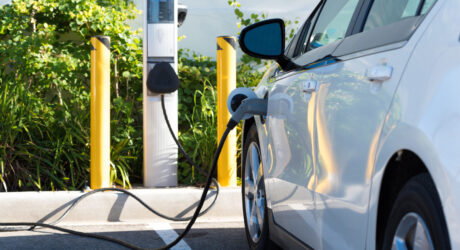
A Guide to Electric Car Batteries
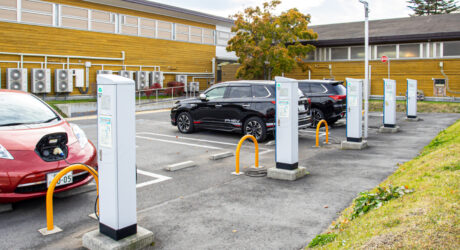
OZEV Grant: What Is It and Am I Eligible?
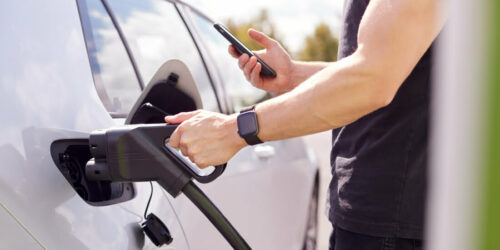
The Best Apps for Finding EV Charging Stations
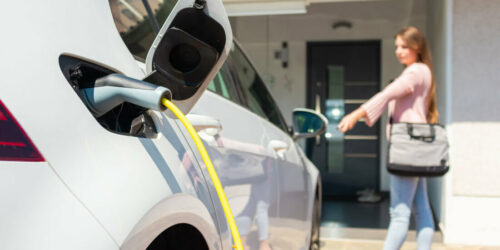
Electric Car Home Charging Stations: The Top Ten EV Chargers for Your Home

Should I Buy a Used Electric Car?
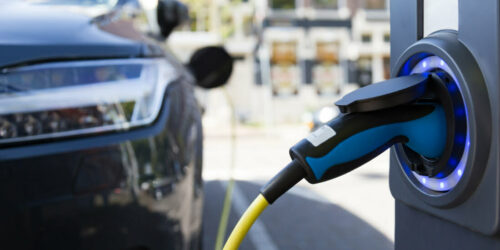
Electric Vehicle Range

Wireless Electric Vehicle Charging Points







